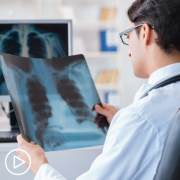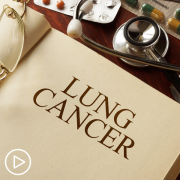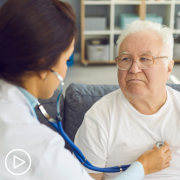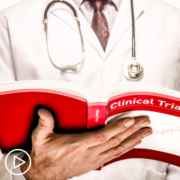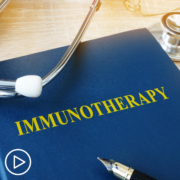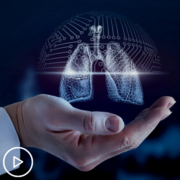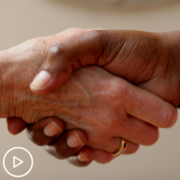Expert Advice for Recently Diagnosed Lung Cancer Patients
Expert Advice for Recently Diagnosed Lung Cancer Patients from Patient Empowerment Network on Vimeo.
A lung cancer diagnosis can be overwhelming. Lung cancer specialist Dr. Estelamari Rodriguez shares key advice for recently diagnosed patients, including tips related to essential testing and preparing for appointments.
Dr. Estelamari Rodriguez is Associate Director of Community Outreach – Thoracic Oncology at the Sylvester Comprehensive Cancer Center, University of Miami Health System. Learn more about Dr. Rodriguez, here.
See More from Thrive Lung Cancer
Related Resources:

|

|

|
Transcript:
Katherine Banwell:
What key advice do you have for recently diagnosed lung cancer patients?
Dr. Estelamari Rodriguez:
I think that a couple of things. When it’s a diagnosis of lung cancer, it’s very overwhelming, and fortunately now there’s a lot of resources online, but at the beginning there’s a lot of information that you don’t know. So, sometimes if you go online all you do is get scared. I think that you need to answer some very specific questions from your doctor. What is your stage? And then, after your stage, my next question is; what is a molecular driver of my tumor, the sequencing of my tumor?
In the past, we thought all the lung cancers were the same, but now we know they’re many, many different types of lung cancer. And they’re the EGFR-driven cancers, the ALK, the ROS, they’re all different, they all have different treatment options. And when you go and look online, there’s organized advocacy groups around each of these mutations, and then you can get better information, and valuable kind of insight from the information that is out there. So, I think the first thing is to before you go in the internet, talk to your doctor about your stage and require, not ask lightly.
Require that your genetic mutation, your sequencing is done at the time of diagnosis of advanced lung cancer. Because that would really determine your treatment.
So, I think that is very important for patients that get diagnosed. And then also, understand that there are a lot of resources out there, so that you need to ask for questions, bring someone with you. During COVID a lot of the clinics were closed, but we were able to have family members join virtually the visits, and now patients can come in with their family members.
I find that having someone else in the room who wrote answers and wrote notes, will really help you kind of get the most out of your consultation. And also ask questions for the next time you come, or we have a portal where patients ask questions online. So, the first visit where you get the most questions answered, and sometimes it’s part B and part C. So, you have to keep until you feel satisfied that you understand the plan. We also tell patients that doctors don’t know everything, sometimes the doctor that you have is not the one that you feel you have a connection with. So, know that you have rights, and there are other doctors out there, and you can get second opinions.
So, you are the best advocate, it’s your life, and you can rely on your doctor, and their physician extenders, physician assistants, nurses, to get as much as you can from that. But also, look outside of your institution, maybe there’s a better option for you.

